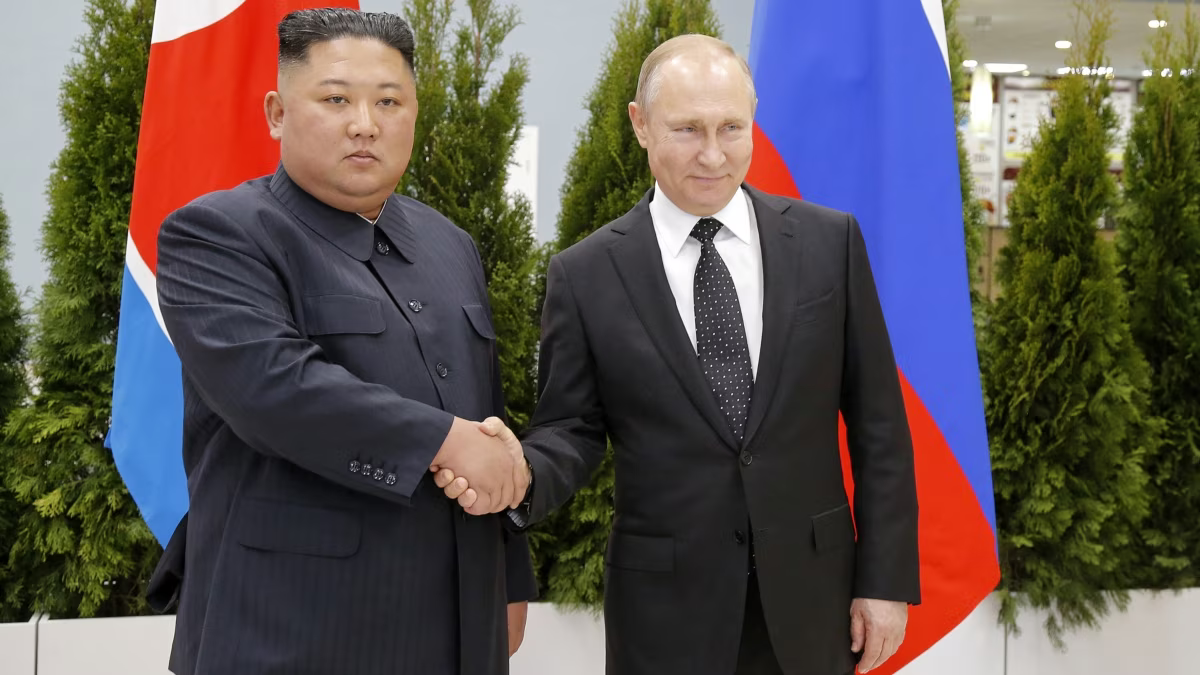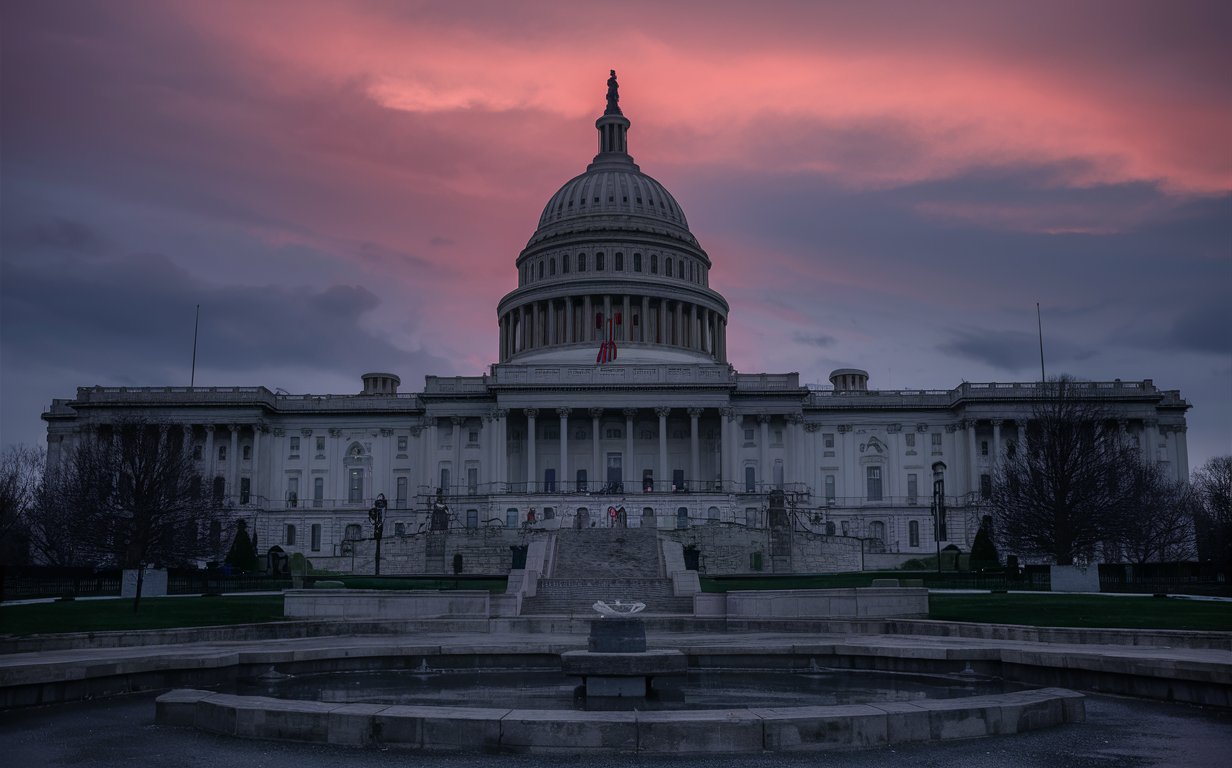Analysis
Russian-North Korean Deal: Unveiling the Perils in 2023

In an ever-connected world, international relations and global politics play a pivotal role in shaping the future of nations and the world at large. One such matter of concern that has recently surfaced is the potential deal between Russia and North Korea. This proposed agreement carries significant implications for not only the countries involved but also for global stability. In this article, we delve deep into the intricacies of this situation, shedding light on the potential dangers it poses.
Table of Contents
Unpacking the Russian-North Korean Relationship
Before we dive into the potential dangers of a deal between Russia and North Korea, it’s essential to understand the context and nature of their relationship. Russia and North Korea have a shared border that spans over 17 kilometers, making them immediate neighbors. This geographical proximity has historically influenced their interactions.
A Historical Perspective
The historical relationship between these two nations has been complex, often marked by periods of tension and cooperation. During the Cold War, the Soviet Union, which Russia succeeded, supported North Korea both politically and economically. However, with the dissolution of the Soviet Union in 1991, this support dwindled, leaving North Korea in a precarious position.
Recent Developments
In recent years, Russia has rekindled its relationship with North Korea, primarily driven by economic interests. The potential for lucrative trade routes and access to North Korea’s mineral resources has enticed Russia. Additionally, Russia has sought to expand its influence in the Asia-Pacific region, making North Korea a strategic partner.
The Potential Dangers
While the prospect of closer ties between Russia and North Korea may seem beneficial on the surface, there are several dangers that warrant concern.
1. Nuclear Proliferation
North Korea’s nuclear program has been a cause of international concern for years. A closer alliance with Russia could provide North Korea with the technological and financial support it needs to advance its nuclear capabilities. This, in turn, could destabilize the entire region and threaten global security.
2. Regional Instability
The Asia-Pacific region has long been a hotbed of tension, with multiple countries vying for influence. A stronger alliance between Russia and North Korea could further exacerbate these tensions, leading to increased instability and potential conflicts.
3. Human Rights Concerns
North Korea has a dismal record when it comes to human rights. Closer ties with Russia might provide a shield for North Korea on the international stage, making it more challenging to address these concerns effectively.
4. Economic Dependency
For North Korea, a deal with Russia could lead to economic dependency. Relying heavily on Russia for trade and resources might limit North Korea’s diplomatic options and could leave it vulnerable to undue influence from Moscow.
5. Global Diplomatic Challenges
A strengthened alliance between Russia and North Korea could pose diplomatic challenges for other nations, particularly the United States and its allies. It might require a delicate balancing act to maintain stability and peaceful relations in the region.
The International Response
In light of these potential dangers, the international community must closely monitor the evolving relationship between Russia and North Korea. Diplomatic efforts, sanctions, and engagement will all play crucial roles in shaping the outcome of this alliance.
Conclusion
The dangers posed by a deal between Russia and North Korea are multifaceted and warrant serious consideration by the global community. Nuclear proliferation, regional instability, human rights concerns, economic dependency, and diplomatic challenges all hang in the balance. It is imperative that the international community remains vigilant and proactive in addressing these potential threats to global stability.
Analysis
The Impending Storm: Iran’s Concerns Over a Second Trump Presidency

Table of Contents
Introduction
As the political landscape in the United States evolves, the spectre of a second term for Donald Trump looms large, casting a shadow of uncertainty over international relations. For Iran, this potential scenario brings forth a myriad of concerns, ranging from economic shocks to heightened military tensions and the risk of widespread unrest. In this article, we delve into the reasons why Iran is apprehensive about the prospect of Donald Trump reclaiming the presidency, examining the implications for the country’s leadership amidst a backdrop of escalating regional conflicts.

Economic Implications
Iran’s economy has been significantly impacted by the Trump administration’s policies, particularly through the re-imposition of sanctions following the U.S. withdrawal from the Iran nuclear deal. A second Trump presidency could exacerbate these economic challenges, leading to further isolation and financial strain for Iran. The uncertainty surrounding future trade agreements and the potential for increased sanctions under a renewed Trump administration create a climate of instability that could have far-reaching consequences for Iran’s economy.
Military Escalation
One of the most pressing concerns for Iran is the possibility of bolder military action by the United States under a second Trump presidency. The recent tit-for-tat strikes with Israel and the looming threat of a wider conflict in the Middle East underscore the precarious nature of regional security. With Trump’s track record of aggressive foreign policy decisions, Iran faces the prospect of heightened military tensions and the risk of direct confrontation with the U.S. and its allies.
Impact on Leadership
The risks posed by a second Trump presidency extend beyond economic and military considerations to the very core of Iran’s leadership. The current regime faces the challenge of navigating a complex geopolitical landscape, where the actions of the U.S. can have profound implications for domestic stability. Increased protest movements, fueled by discontent over economic hardships and political repression, could further destabilize Iran’s leadership and exacerbate internal divisions.
Conclusion
In conclusion, the potential re-election of Donald Trump as U.S. president presents a formidable set of challenges for Iran, encompassing economic uncertainty, military escalation, and internal unrest. The implications of a second Trump presidency for Iran’s leadership are profound, requiring a strategic approach to navigate the complexities of international relations and safeguard the country’s interests. As Iran prepares for an uncertain future, the spectre of a second Trump presidency looms large, casting a shadow of apprehension over the nation’s political landscape.
Analysis
Unveiling Carvana’s Recent Insider Stock Sales: Analyzing the Impact of Ernest C. Garcia II’s $8.2 Million Transactions

Table of Contents
Introduction:
In the ever-changing world of stock markets, investors often scrutinize insider trading activities to gain insights into a company’s performance. Recently, Carvana Co. (NYSE:CVNA) has been making headlines due to significant shareholder Ernest C. Garcia II’s series of stock sales, which amounted to over $8.2 million. These transactions were executed between April 26 and April 29, 2024. As a result, many in the investment community are curious and analyzing the implications of these sales for both Carvana and investors at large. This article provides an in-depth analysis of Garcia’s stock sales and their implications.
Understanding the Transactions:
Ernest C. Garcia II’s stock sales unfolded over a span of four days, involving the disposal of Class A Common Stock at prices ranging from $80.0928 to $87.8791. On April 26, Garcia initiated the sales by offloading 50,000 shares at an average price of $80.0928. The subsequent transactions on April 29 comprised 6,204 shares at $83.8822, 22,246 shares at $84.9145, 14,537 shares at $85.9585, 5,764 shares at $86.7816, and 1,249 shares at $87.8791. Despite these sales, Garcia retains a significant stake in Carvana, with direct ownership of 3,212,500 shares and additional indirect holdings through trusts and LLCs.
The Regulatory Framework:
It is crucial to note that these sales were executed under a Rule 10b5-1 trading plan, established by Garcia and his spouse on March 11, 2024. This plan enables company insiders to predetermine stock trading activities at times when they are not privy to material non-public information, safeguarding against allegations of insider trading. By adhering to this regulatory framework, Garcia ensures transparency and compliance in his stock transactions.
Analyzing Garcia’s Position at Carvana:
Ernest C. Garcia II holds a prominent position at Carvana as a ten percent owner, underscoring his significant influence within the company. Despite the recent stock sales, Garcia’s substantial ownership reaffirms his vested interest in Carvana’s success and long-term growth. His continued involvement and stake in the company signal confidence in Carvana’s strategic direction and potential for future prosperity.
Investor Insights and Market Impact:
For investors and market observers, insider transactions serve as a valuable source of information regarding a company’s health and future performance. Carvana, operating in the auto retail and gasoline stations sector, has witnessed fluctuations in its stock performance, making Garcia’s transactions a focal point for shareholders and potential investors. By scrutinizing these sales, stakeholders can glean insights into Carvana’s internal dynamics, strategic decisions, and overall market positioning.
Conclusion:
In conclusion, Ernest C. Garcia II’s recent insider stock sales at Carvana have stirred interest and speculation within the investment community. By conducting these transactions under a Rule 10b5-1 trading plan, Garcia upholds regulatory compliance and transparency in his dealings. His continued ownership stake underscores his commitment to Carvana’s success and future prospects. As investors analyze these transactions for cues on the company’s trajectory, the impact of Garcia’s sales on Carvana’s stock performance and market perception remains a subject of ongoing scrutiny and evaluation.
Analysis
The Growing Threat: Houthis Extend Attacks on Shipping in the Indian Ocean

Recently, the Houthi rebels from Yemen have been increasing their attacks on ships in the Indian Ocean. This has raised concerns among maritime experts about a new wave of threats in the region. The escalation in activity follows a drone strike on a container vessel, which indicates a potentially dangerous trend that could have far-reaching implications for maritime security and global trade.
Table of Contents
Understanding the Houthis and Their Motivations
The Houthis, officially known as Ansar Allah, are a Shia insurgent group that has been involved in a protracted conflict in Yemen since 2014. They have been fighting against the internationally recognized government of President Abdrabbuh Mansur Hadi, leading to a complex and devastating civil war in the country. The group is known for its anti-Western and anti-Saudi Arabia stance, which has shaped its actions and alliances in the region.

The Impact of Houthi Attacks on Shipping
The recent extension of Houthi attacks to the Indian Ocean is a significant development that has raised alarms within the maritime community. The targeting of a container vessel with a drone strike highlights the group’s growing capabilities and willingness to disrupt maritime activities in key waterways. Such attacks not only pose a direct threat to the safety of ships and crew but also have broader implications for global trade and energy security.
Analyzing the Strategic Implications
Maritime experts are closely monitoring the situation and assessing the strategic implications of the Houthis’ actions. The Indian Ocean is a vital maritime corridor that connects major shipping routes between Asia, Africa, and the Middle East. Any disruption in this region could have serious consequences for international trade, affecting supply chains and economic stability worldwide.
Response from the International Community
The escalation of Houthi attacks in the Indian Ocean has prompted responses from the international community, with calls for increased vigilance and security measures in the region. Countries bordering the Indian Ocean, as well as major maritime powers, are working to enhance coordination and intelligence-sharing to address the growing threat posed by the Houthis.
Mitigating the Risks and Ensuring Maritime Security
In light of these developments, stakeholders must prioritize maritime security and take proactive measures to mitigate the risks associated with Houthi attacks. Enhanced surveillance, intelligence gathering, and cooperation among navies and maritime agencies are essential to safeguarding shipping lanes and ensuring the free flow of goods across the Indian Ocean.
Conclusion
The recent extension of attacks on shipping by the Houthis across the Indian Ocean is a cause for concern and highlights the complex security challenges that the maritime domain faces. To address this threat and maintain the safety and stability of maritime operations in the area, it is crucial for the international community to understand the motivations behind these attacks, analyze their impact, and implement effective security measures. A proactive approach, cooperation, and vigilance are crucial to navigating these turbulent waters and safeguarding the future of global trade and maritime security.
-

 Featured3 years ago
Featured3 years agoThe Right-Wing Politics in United States & The Capitol Hill Mayhem
-

 Elections 20242 months ago
Elections 20242 months agoAnalyzing Trump’s Super Tuesday Triumph and Nikki Haley’s Strategic Moves
-

 News2 years ago
News2 years agoPrioritizing health & education most effective way to improve socio-economic status: President
-

 China3 years ago
China3 years agoCoronavirus Pandemic and Global Response
-

 Canada3 years ago
Canada3 years agoSocio-Economic Implications of Canadian Border Closure With U.S
-

 Conflict3 years ago
Conflict3 years agoKashmir Lockdown, UNGA & Thereafter
-

 Democracy3 years ago
Democracy3 years agoMissing You! SPSC
-

 Democracy3 years ago
Democracy3 years agoPresident Dr Arif Alvi Confers Civil Awards on Independence Day























